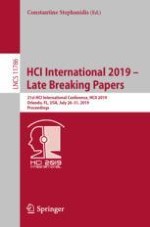2019 | OriginalPaper | Buchkapitel
Development of a Puzzle Game to Learn Coding for Elementary Students
verfasst von : Jaisoon Baek, Gyuhwan Oh
Erschienen in: HCI International 2019 – Late Breaking Papers
Aktivieren Sie unsere intelligente Suche, um passende Fachinhalte oder Patente zu finden.
Wählen Sie Textabschnitte aus um mit Künstlicher Intelligenz passenden Patente zu finden. powered by
Markieren Sie Textabschnitte, um KI-gestützt weitere passende Inhalte zu finden. powered by
